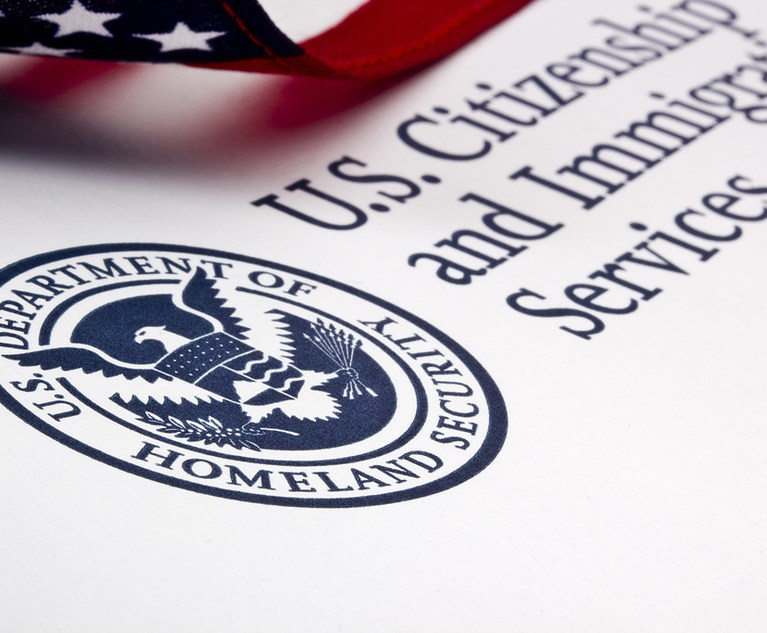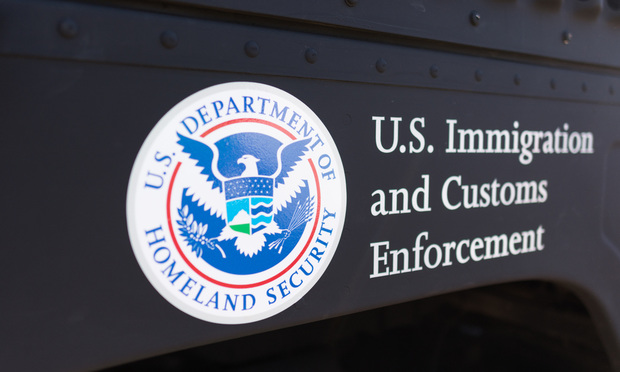Zlatko Hadzismajlovic

December 07, 2021 | New York Law Journal
Litigation Provides Limited Relief to Dependent Spouses Seeking Work PermitsAfter years of outreach to U.S. Citizenship and Immigration Services, a major settlement has forced the agency to update its policy to provide that certain dependent spouses will qualify for an automatic extension of their work authorization, provided certain conditions are met.
By Amy Haberman and Zlatko Hadzismajlovic
4 minute read

October 30, 2020 | New York Law Journal
Rush To Rule: More Trump-Era Agency Actions Destined for a Loss in CourtAs of Oct. 7, 2020, the Trump administration has lost a staggering 119 times in federal court over its use of agency action. It has been successful 22 times. With that in mind, this article summarizes some of the most impactful changes.
By Amy Haberman and Zlatko Hadzismajlovic
13 minute read

May 14, 2015 | New York Law Journal
L-1B Specialized Knowledge and the Slow Road to AdjudicationZlatko Hadzismajlovic discusses current challenges involving the L-1B visa, created to facilitate the intracompany transfer of qualifying employees from a foreign entity to its U.S. affiliate; responding USCIS policy memoranda; and the effect, if any, of such pronouncements on adjudications.
By Zlatko Hadzismajlovic
10 minute read

May 13, 2015 | New York Law Journal
L-1B Specialized Knowledge and the Slow Road to AdjudicationZlatko Hadzismajlovic discusses current challenges involving the L-1B visa, created to facilitate the intracompany transfer of qualifying employees from a foreign entity to its U.S. affiliate; responding USCIS policy memoranda; and the effect, if any, of such pronouncements on adjudications.
By Zlatko Hadzismajlovic
10 minute read

December 29, 2014 | New York Law Journal
President's Move on Visa Modernization and Other Efforts to Fix the SystemZlatko 'Zack' Hadzismajlovic of McCarter & English discusses the proposed changes to the L-1B specialized knowledge adjudication standards.
By Zlatko Hadzismajlovic
12 minute read

October 16, 2006 | National Law Journal
Employer ComplianceCongress is considering sweeping changes to the IRCA of 1986, the law that requires employers to verify the employment eligibility and identity of all employees hired on or after Nov. 7, 1986. If enacted, they will meaningfully encumber the hiring process for all U.S. employers.
By Zlatko Hadzismajlovic
8 minute read

December 08, 2009 | New York Law Journal
E-Verify: a Sober Glance at What May Become the Law of the LandZlatko Hadzismajlovic, a lawyer with McCarter & English, writes: The E-Verify system is neither new nor improved. It's a rebranded system with a technological platform dating back to 1996 when it was called Basic Pilot. Its threshold defect, aside from being outdated, is that it relies on erroneous data housed by the SSA. By the SSA's own admission, some 17.8 million of its files contain incorrect data and, of that number, 70 percent belong to U.S. citizens. Expansion of E-Verify appears to benefit none aside from the fervent anti-immigrant throng.
By Zlatko Hadzismajlovic
12 minute read



